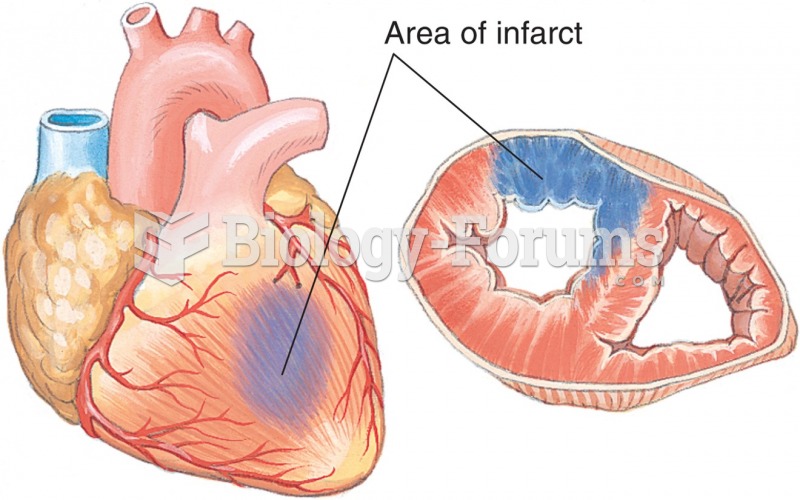|
|
|
About 100 new prescription or over-the-counter drugs come into the U.S. market every year.
In 2012, nearly 24 milliion Americans, aged 12 and older, had abused an illicit drug, according to the National Institute on Drug Abuse (NIDA).
When blood is deoxygenated and flowing back to the heart through the veins, it is dark reddish-blue in color. Blood in the arteries that is oxygenated and flowing out to the body is bright red. Whereas arterial blood comes out in spurts, venous blood flows.
Approximately one in four people diagnosed with diabetes will develop foot problems. Of these, about one-third will require lower extremity amputation.
Your chance of developing a kidney stone is 1 in 10. In recent years, approximately 3.7 million people in the United States were diagnosed with a kidney disease.
 Calculation of body mass index. To determine your BMI, find the value for your height on the left ...
Calculation of body mass index. To determine your BMI, find the value for your height on the left ...
 Apply circular friction to the left side of the neck along cervical muscles with the fingertips of ...
Apply circular friction to the left side of the neck along cervical muscles with the fingertips of ...





